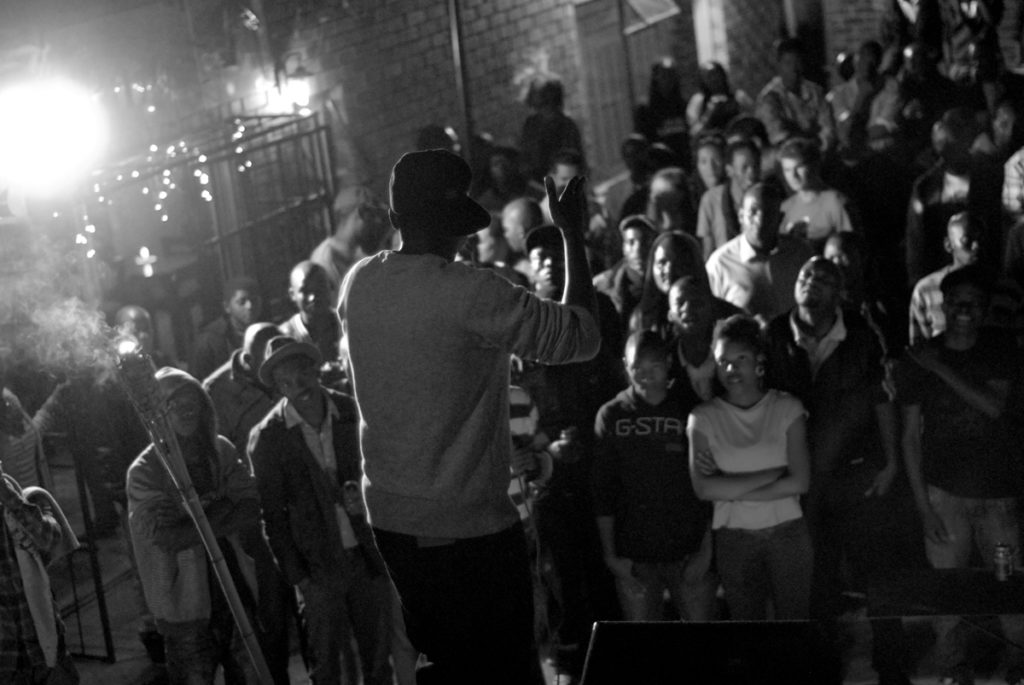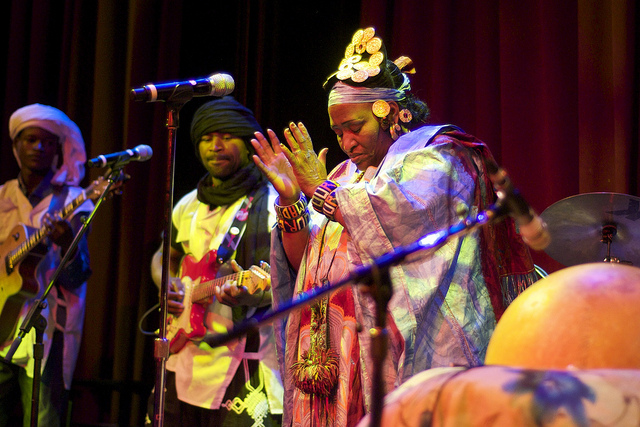When I woke up to International Women’s Day celebrations last week, the first thing on my mind wasn’t politics, but the personal connections I didn’t know I would forfeit the minute I stopped wearing skirts, traded in my long hair for a frohawk, and fell in love with a woman.
I used to have a very close-knit circle of African/black female friends. We defended each other from perverts at crowded bars, cried on each other’s shoulders, told each other we were beautiful whenever the world made us doubt that we were, and gave each other relationship advice, regardless of the gender of the person we loved.
We were sisters. It didn’t matter if we were tomboys or not. We were sisters. It didn’t matter that some of us wore skirts, and some of us wore shorts. We were sisters. That was all that mattered. Right?
Wrong. The second my gender presentation transitioned from “straight-girl-femininity” to “queer-masculine-in-betweener”, I lost most of my black female friends. I’m a different kind of woman now. And all of a sudden women I used to call my sisters don’t know how to interact with me. I’m still a woman but the reactions to my expression of womanhood have changed, drastically.
This is the kind of experience that informs my work as a media activist. I’m always thinking about which perspectives are missing from political conversations about women’s equality and representations of African women in pop culture. Who is being excluded? Why? How can the African women’s movement become more self-reflective so that we can identify who among us is being left behind, and become stronger advocates for the kind of progress that includes them? Incidentally, in the fight for women’s equality, the people most frequently excluded from consideration and celebration, often enough look just like me.
A few years ago I wrote about the experience of being forced to wear a dress to my Nigerian friend’s wedding (even though she knew I was a tomboy). Despite the political successes the women’s movement is celebrating today, not much has changed for me, professionally and personally.
Even within the open-minded, women’s activist spaces in which I find myself for work, I still have to endure not just the endless hours of boyfriend/husband talk (as though women can’t bond around any other topic), but also – after I attempt to contribute – the prolonged, awkward silences that follow once they realise my partner is a woman.
My straight girlfriends – bless their hearts – enjoy inviting me to their favourite (straight) nightclubs so they can maintain their perception of my being “normal”, but have no clue how uncomfortable it is to be a tomboy in a venue with a dress code policy that insists “ladies wear heels, men button-downs and hard soles.” So, they’ll usually abandon me on the dance floor to go to the ladies room for a “touch up”, or worse, disappear into the post-nightclub meat market, leaving me exposed on a street curb as a prime target for drunk dudes to take out insecurities about their masculinity: “Was that your girlfriend? What, you think you’re a dude? You like pussy? I like it, too. I got a dick though.”
Yup, that happened. I even broke up with a friend over such an incident.
I can’t tell you how many times my masculinity has been used to absolve other women (and men) of the responsibility of advocating for me; whether in the face of harassers on street corners, the gendered aisles of mainstream clothing stores, or even within the women’s movement itself – it’s as though people automatically assume I’m “stronger”, physically, mentally and emotionally, just because I shop in the men’s department.
“Don’t worry about her. She can take care of herself.”
But I have never experienced physical aggression from the world to the degree that I do now. From constantly dodging men who take it upon themselves to “put me in my place” to being ignored by women who’ve subconsciously decided that I’ve chosen “the other side”, I’ve never felt less safe and more in need of protecting.
I can’t help but note how often my masculinity is the unspoken reason I’m excluded from African women’s spaces, and denied access to the very same sisterhood that nurtured my unwavering dedication to every woman’s empowerment.
Since losing access to “the sisterhood”, I’ve been rebuilding my support network from scratch, one in which the full spectrum of “womanhood” isn’t just acknowledged, but celebrated: African feminists committed to building cross-movement alliances, queer “brown bois” in the US leading national conversations about healthy masculinity, and progressive women of all shades and stripes interested in seeing gender justice done in the media.
I am fortunate. But today, I’m also aware of just how fortunate I am to have experienced even this yearning for a sisterhood that I did have – at least at some point. Even as a tomboy/woman whose gender presentation is more masculine my identity as a woman has never been questioned. But some of my sisters have never known that privilege. I know transgender women (born male, now living as women) and also, intersex women, for instance, who have never known the comfort, loyalty and power of a female friend circle.
But, we are still sisters. It shouldn’t matter that some of us were born male and some born female. We are sisters in blood and numbers, in shared missions and shared struggles.
That’s all that matters. That’s all that should matter … Right?
I was asked last week to contribute a response to “What does Women’s Day mean to you?” This was part of my answer:
When I remember how my mother celebrated International Women’s Day – as part of a community of hundreds, sometimes thousands, of African women, dressed in bright colours, often laughing and dancing, holding hands – I think about how many African lesbians have been evicted from their sister circles, how many transgender women have never experienced unguarded female friendship. Women’s Day inspires me to keep writing my story so that my African sisters can get to know me, and to keep advocating for queer Africans like me who are still fighting – not just for women’s “rights” but for women’s community, sisterhood, love.
Women’s Day should be a reminder to all of us to keep advocating for every woman’s right to love and be loved, even long after we’ve found sisterhood for ourselves.
Spectra is a Nigerian writer, media advocate and social commentator on gender, sexuality and pop culture. Her writing critiques social movements through the lens of media psychology at spectraspeaks.com. Connect with her on Twitter.





